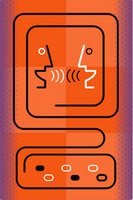[Made this post at IQ Brain Clock sister blog...but thought IQs Corner readers might find interesting]
Very interesting research (Thut & Miniussi, 2009; Trends in Cognitive Sciences) being reported on the synchronization of brain oscillation behavior (brain rhythms) and neurotechnology to stimulate brain rhythm to enhance cognitive and motor performance.
The whole concept of neurological or brain rhythm has permeated a number of strands of research related to the internal mind or brain clock (mental interval timing). Also, if you've viewed my two on-line PPT presentations on (a) mental timing (IQ Brain Clock) and (b) trying to explain the positive effects of Interactive Metronome on a variety of cognitive and motor outcomes, you will see mention of hypothesized mechanisms dealing with synchrony of brain circuits, coordination of brain regions, increased neural efficiency, etc...all that seem to possibly relate to what researchers are now calling brain rhytyms.
Very interesting stuff. Although electronically or magnetically stimluating the brain to increase neural syncrhonization and rhythm is interesting, as noted in the two PPT slides linked above, I've hypothesized that the positive effect of less expensive technologies (e.g., Interactive Metronome ; conflict of interest - I'm on the IM Scientific Advisory Board) might be accomplishing similar effects by "fine-tunning brain rhythms."
Below is the abstract for the above linked article. Warning..it is a very technical article and not an easy read. Make sure your brain rhythms are at peak performance before trying to read the article.
There is renewed interest in the functional role of oscillatory brain activity in specific frequency bands, investigated in humans through electroencephalography (EEG) and magnetoencephalography (MEG) recordings. In parallel, there is a growing body of research on noninvasive direct stimulation of the human brain via repetitive (rhythmic) transcranial magnetic stimulation (TMS), and on those frequencies that have the strongest behavioural impact. There is, therefore, great potential in combining these two lines of research to foster knowledge on brain rhythms, in addition to potential therapeutic applications of rhythmic brain stimulation. Here, we review findings from this rapidly evolving field linking intrinsic brain oscillations to distinct sensory, motor and cognitive operations. The findings emphasize that brain rhythms are causally implicated in cognitive functions.Technorati Tags: psychology, school psychology, educational psychology, neuropsychology, neuroscience, neurotechnology, brain stimulation, brain clock, brain rhytm, neural efficiency








